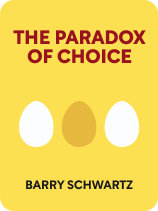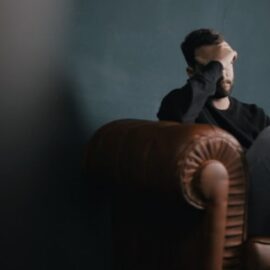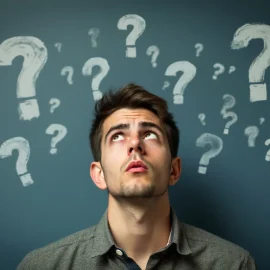

This article is an excerpt from the Shortform book guide to "The Paradox of Choice" by Barry Schwartz. Shortform has the world's best summaries and analyses of books you should be reading.
Like this article? Sign up for a free trial here .
What are counterfactuals? What’s the difference between an upward and a downward counterfactual?
Counterfactuals are the hypothetical situations you imagine—such as wondering what life would be like if you had taken that other job. Counterfactuals can go both ways. Upward counterfactuals are when you imagine how things could be better, and downward counterfactuals are when you think of how things could be worse.
Learn more about counterfactuals and how they affect mental health.
Upward and Downward Counterfactuals
Schwartz writes that, to make matters worse, we have the ability to imagine scenarios—called counterfactuals—that prompt regret.
So, what are counterfactuals? Counterfactuals are hypothetical situations we imagine. For example, we envision how past events might have gone differently, or what our lives would be like had we made different choices. These hypothetical scenarios can make us regret the choices that led to our current circumstances.
Schwartz writes that we typically imagine counterfactual scenarios when something makes us unhappy. For instance, you could be generally satisfied with your life, but every day you get stuck in traffic on your commute to work. One morning, in particularly bad bumper-to-bumper traffic, you imagine life without this inconvenience. Then you start to regret your life as a whole—if you’d chosen a different career in a different city, you wouldn’t have such a frustrating commute. Imagining how things could be better is an upward counterfactual.
(Shortform note: A 2017 study showed a correlation between upward counterfactuals and depression. It’s unclear whether depression causes people to think of upward counterfactuals or vice versa, but this data backs up Schwart’s idea that frequent counterfactual thinking leads to unhappiness and regret.)
In contrast, Schwartz explains that imagining how we could be worse off—a downward counterfactual—can be positive because these counterfactuals can make us feel grateful for our lives and the choices we’ve made. After all, we could have chosen much worse. We don’t naturally imagine downward counterfactuals (or look on the bright side), so Schwartz advises people struggling with regret to make a point of doing so.
For example, imagine a college student who studied hard for a calculus exam and got a C+. Although she’d hoped to do better, she could choose to imagine a downward counterfactual: She might not have studied at all and failed. Imagining a worse outcome makes her feel better about her C+.
| Downward Counterfactuals and Procrastination While Schwartz writes that most people don’t naturally imagine downward counterfactuals, some are inclined to do so—namely, procrastinators. The tendency to imagine downward counterfactuals is associated with the tendency to procrastinate. A study indicated that, when presented with scenarios that can cause anxiety, like seeking medical care, participants with a tendency to procrastinate generated numerous downward counterfactuals and relatively few upward counterfactuals. For instance, they imagined the ways in which their health could be worse, reducing their sense of urgency about seeking medical care. This seems to be linked to procrastination because imagining downward counterfactuals takes the pressure off making tough decisions—since things aren’t so bad now, you don’t need to make a decision right away. Procrastination is related to difficulties in decision-making, since challenging choices can trigger stress, leading some to put off making the choice indefinitely. People who regularly imagine downward counterfactuals, then, may be people who already have some difficulty making choices. |

———End of Preview———
Like what you just read? Read the rest of the world's best book summary and analysis of Barry Schwartz's "The Paradox of Choice" at Shortform .
Here's what you'll find in our full The Paradox of Choice summary :
- Why the more choices we have, the more stressed and indecisive we feel
- How to better navigate our choices, from groceries to health insurance
- Whether it's better to seek the best or accept "good enough"






